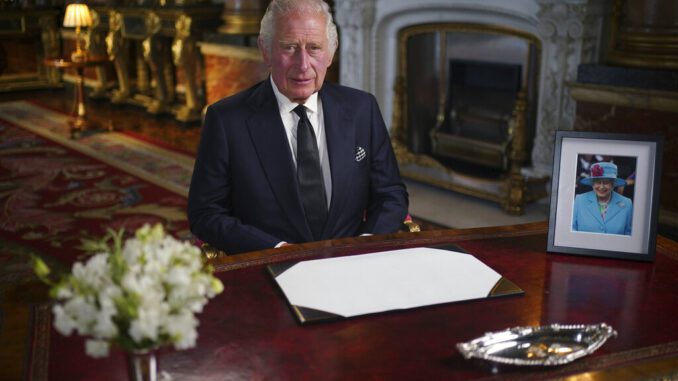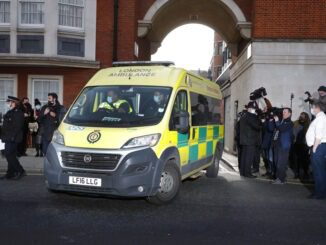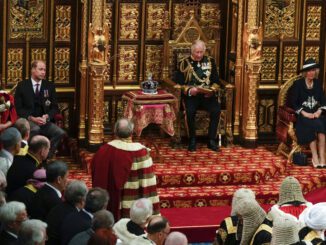
LONDON — Bells tolled across Britain on Friday and mourners flocked to palace gates to honor Queen Elizabeth II as the country entered a new age under a new king. Around the world, her exceptional reign was commemorated, celebrated and debated.
King Charles III, who spent much of his 73 years preparing for the role, met the prime minister and prepared to address a nation grieving the only British monarch most people alive today had ever known. He takes the throne in an era of uncertainty for both his country and the monarchy itself.
As the country began a 10-day mourning period, people around the globe gathered at British embassies to pay homage to the queen, who died Thursday at Balmoral Castle in Scotland.
In London and at military sites across the United Kingdom, cannons fired 96 shots in an elaborate, 16-minute salute marking each year of the queen’s life.
In Britain and across its former colonies, the widespread admiration for Elizabeth herself was occasionally mixed with scorn for the institution and the imperial history she symbolized.
On the king’s first full day of duties, Charles left Balmoral and flew to London for a meeting with Prime Minister Liz Truss, appointed by the queen just two days before her death.
He arrived at Buckingham Palace, the monarch’s London home, for the first time as sovereign, emerging from the official state Bentley limousine alongside Camilla, the queen consort, to shouts from the crowd of “Well done, Charlie!” and the singing of the national anthem, now called “God Save the King.” One woman gave him a kiss on the cheek.
Under intense scrutiny and pressure to show he can be both caring and regal, Charles walked slowly past flowers heaped at the palace gates for his mother. The mood was both grieving and celebratory.
In the evening, he was scheduled to deliver his first speech to the nation as king, at a time when many Britons are facing an energy crisis, the soaring cost of living, the war in Ukraine and the fallout from Brexit.
As the second Elizabethan Age came to a close, hundreds of people arrived through the night to grieve together outside the gates of Buckingham Palace and other royal residences, as well as British embassies worldwide. Some came simply to pause and reflect.
Finance worker Giles Cudmore said the queen had “just been a constant through everything, everything good and bad.”
At Holyrood Palace in Edinburgh, mourner April Hamilton stood with her young daughter, struggling to hold back tears.
“It’s just such a momentous change that is going to happen,” she said. “I’m trying to hold it together today.”
Everyday politics was put on hold, with lawmakers paying tribute to the monarch in Parliament over two days, beginning with a special session where Truss called the queen “the nation’s greatest diplomat.”
Senior lawmakers will also take an oath to King Charles III.
Meanwhile, many sporting and cultural events were canceled as a mark of respect, and some businesses — including Selfridges department store and the Legoland amusement park — shut their doors. The Bank of England postponed its meeting by a week.
Archbishop of Canterbury Justin Welby said, “A part of our lives we’ve taken for granted as being permanent is no longer there.”
But while Elizabeth’s death portends a monumental shift for some, day-to-day life in Britain went on in other respects, with children in school and adults at work, facing concerns about inflation.
Later Friday, Truss and other senior ministers were expected to attend a public remembrance service at St. Paul’s Cathedral in London. Charles, who became the monarch immediately upon his mother’s death, will be formally proclaimed king at a special ceremony Saturday.
The new king is expected to tour the United Kingdom in the coming days.
The queen’s coffin will be brought to London, where she is expected to lie in state before a funeral at Westminster Abbey, expected around Sept. 19.



